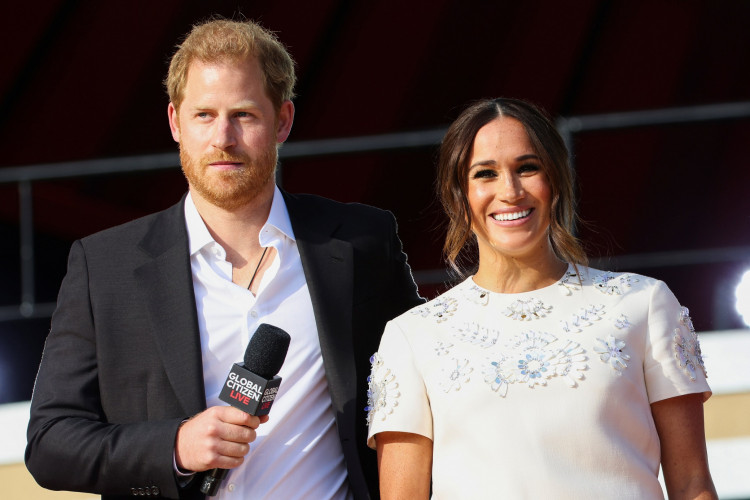Prince Harry and Meghan Markle's planned trip to the UK with their children, Prince Archie and Princess Lilibet, was halted due to security concerns, as detailed in recent court documents. The Duke and Duchess of Sussex had hoped to introduce their young children to various charitable causes close to their hearts in September 2022, but the Executive Committee for the Protection of Royalty and Public Figures (RAVEC)'s decision on security measures prevented this family engagement.
The documents shed light on the Sussexes' intentions, revealing that the couple had notified the Home Office well in advance about their visit. "The Home Office had been notified on 3 August 2022 that the claimant and his wife and children would be visiting the United Kingdom between 2 and 11 September 2022," one document reads, pointing to the detailed planning undertaken by Harry and Meghan for this trip, according to the Mirror.
However, the security arrangements proposed by RAVEC were deemed insufficient by the couple, prompting a significant alteration to their travel plans. The couple's response to RAVEC's decision highlighted their concerns, stating that the security measures for their September visit "were not lawful and that [redacted text] was plainly inadequate." This decision led to the Duke and Duchess traveling to the UK without their children, missing out on a pivotal opportunity to connect them with British charitable organizations.
This development is part of a broader narrative surrounding Prince Harry's ongoing legal battle with the Home Office over the downgrading of his security detail after stepping back from royal duties. The High Court's recent ruling against Harry has brought the issue of the Sussexes' security into sharper focus, raising questions about the safety and freedom of movement for the family.
Harry's legal team has argued vehemently against the current security arrangements, stating that the "so-called 'bespoke process' that applies to him, is no substitute for that risk analysis." This stance underscores the gravity of the security challenges facing the Duke and Duchess, emphasizing the potential risks of inadequate protection.
The legal discourse surrounding the Sussexes' security arrangements has broader implications for public figures' safety and the responsibilities of the state in ensuring their protection. As Harry prepares to appeal the High Court's decision, the debate over the appropriate level of security for royals and public figures who have stepped back from their official duties continues to unfold.
The situation also highlights the personal toll these security concerns have taken on Harry and Meghan, particularly in their efforts to maintain a connection with the UK and its charitable sector. The couple's desire to involve their children in their philanthropic endeavors speaks to their commitment to these causes and their wish to root their family in a tradition of service.
As the legal and public discourse around the Sussexes' security arrangements evolves, the implications for their family life and charitable work remain significant. The balance between public duty, personal safety, and the right to privacy continues to be a contentious issue, reflecting the complex landscape in which modern royals and public figures operate.





